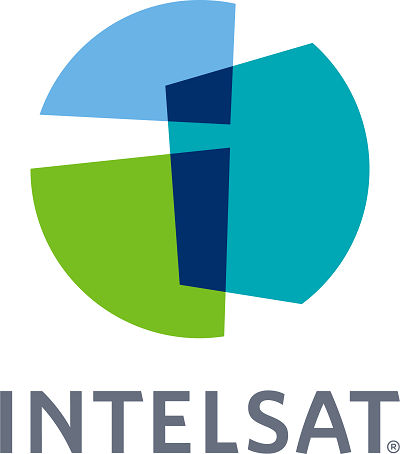Summary:
Designs, develops, troubleshoots and debugs software programs for enhancements and new products. Develops software and tools in support of design, infrastructure and technology platforms, including operating systems, compilers, routers, networks, utilities, databases, cloud-based and Internet-related tools. Determines hardware compatibility and/or influences hardware design.
Duties & Responsibilities:
Job Description Summary
Need Database Architect to design recommend relational, Graph, No SQL and large scale database product team.
As a Database Architect you are responsible for the strategic design and implementation of database systems. They work closely with other IT professionals, including developers, system administrators, and data scientists, to ensure that databases meet business requirements and support organizational goals. The role involves both technical and strategic responsibilities, ensuring that databases are not only functional but also optimized for performance, security, and scalability.
Hiring Requirements
Job Description
- You will be playing a key role in the next-gen SaaS product and platform development.
- Architecture Planning: Design database architectures that support current and future data needs, including distributed databases and data warehouses.
- Schema Design: Develop and implement database schemas that are normalized, efficient, and scalable.
- Data Modelling: Create data models that accurately represent business processes and requirements.
- Configuration Tuning: Adjust database configuration settings to maximize performance based on workload and usage patterns.
- Disaster Recovery: Design and test disaster recovery plans to minimize downtime and data loss in case of failures.
- Replication: Implement replication strategies to ensure data availability and fault tolerance.
- Sharding: Design and implement sharding strategies to handle large-scale data.
- Clustering: Set up and manage database clusters for load balancing and high availability.
- Access Control: Implement and manage user roles and permissions to secure data.
- ETL Processes: Design and manage ETL processes to integrate data from various sources.
- Data Pipelines: Build and maintain data pipelines for continuous data flow.
- Achieves organizational goals by defining, integrating, and upgrading a comprehensive architecture to support applications, platforms, and databases.
- Maintains database by determining structural requirements, and developing and installing solutions.
- Ensures security of all information and computer systems and digital data.
- Ensures adherence to government regulations and guidelines for technological systems and safeguarding of data.
- Recommends upgrades and systems for purchase based on the current and future projection.
- Trouble shoots and finds solutions for computer systems issues that affect data storage as they arise.
- Understanding of data analysis, business principles, and operations
- Software architecture and design
- Network design and implementation
- Problem-solving capability
- Ability to clearly present technical information to fellow technical professionals as well as non-technical peers
- Achieves ecommerce information architecture operational objectives by contributing information and recommendations to strategic plans and reviews, preparing and completing action plans, implementing production and quality standards, resolving problems, identifying trends, determining system improvements, and implementing change.
- Meets information architecture financial objectives by forecasting requirements, preparing budgets, scheduling expenditures, analyzing variances, and initiating corrective actions.
- Studies organizational mission, goals, and business drivers, and confers with senior management to understand information requirements.
- Defines infrastructure for design and integration of internet computing systems by analysing information requirements, studying business operations and user-interface requirements, and directing development of physical database.
- Determines platform architecture, technology, and tools.
- Confirms architecture capability and flexibility to support high availability web applications by developing analytical models and completing validation tests.
- Improves architecture by tracking emerging technologies and evaluating their applicability to business goals and operational requirements.
- Communicates technology needs and strategy to fellow members of executive team.
- Updates job knowledge by participating in educational opportunities, reading professional publications, and participating in professional organizations.
- Contributes ideas for continually improving database performance and maintain stable storage. .
Technical Skills
- Database Systems: Proficiency with various database systems (e.g., MySQL, PostgreSQL, Timescale, Arango, Oracle, SQL Server, MongoDB, Cassandra).
- SQL and NoSQL: Advanced SQL skills and knowledge of NoSQL databases.
- Big Data Technologies: Experience with big data technologies like Hadoop, Spark, Kafka, and data warehousing solutions (e.g., Redshift, BigQuery, Snowflake).
- Replication and Clustering: Knowledge of replication and clustering techniques.
- Problem-Solving: Strong analytical and problem-solving skills to address complex data challenges.
Configuration Areas:
- Server Specifications: Select appropriate server specifications (CPU, memory, storage, network) based on the workload and performance requirements.
- Storage Configuration: Configure storage solutions (SSD, HDD, RAID) for optimal performance and reliability.
- Network Configuration: Ensure network settings are optimized for low latency and high throughput.
- Resource Allocation: Allocate CPU, memory, and storage resources appropriately to each database instance.
- Instance Parameters: Configure instance-level parameters such as buffer sizes, cache sizes, and connection limits.
- Query Optimization: Tune query execution plans and configure settings for query optimization.
- Caching: Configure database caches (e.g., query cache, buffer cache) to enhance performance.
- Replication: Set up and configure replication to ensure data availability and redundancy.
- Sharding: Configure sharding for distributing data across multiple nodes.
- Clustering: Implement and configure clustering for load balancing and high availability.
Additional Job Description
- Bachelor's degree in Computer Science / IT/Computing or equivalent
- 14+ years of experience in Database Architect.
- Significant proficiency/in-depth knowledge in the domain (technology and/or products)
- Thorough understanding of software development and/or support methodologies, principles and procedures and related software management tools.
- Experience with Telecom Product development with TMF standards preferred
- Experience building scalable SaaS platform clear advantage.
Pre-Requisites / Skills / Experience Requirements:
Top Skills
What We Do
VIAVI Solutions (NASDAQ: VIAV) is a global leader in both network and service enablement and optical security performance products and solutions. Our technologies contribute to the success of a wide range of customers – from the world’s largest mobile operators and governmental entities to enterprise network and application providers to contractors laying the fiber and building the towers that keep us connected









